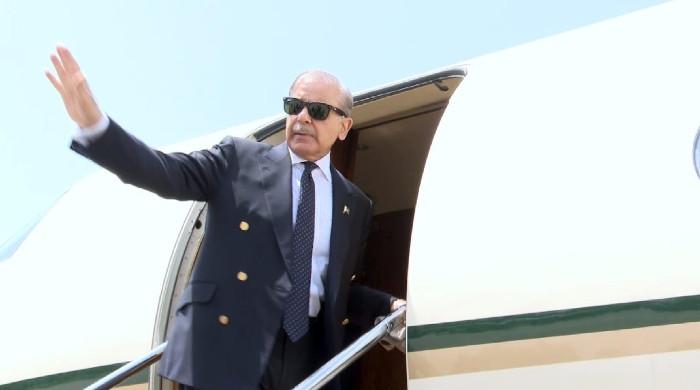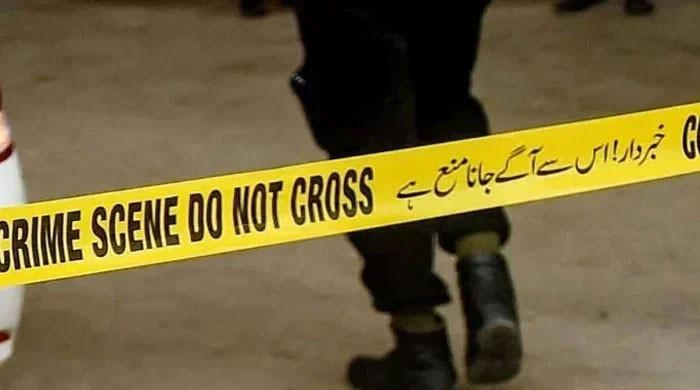Polling underway to elect next US president
WASHINGTON: Tens of millions of Americans trooped to polling stations on Tuesday to give their final verdict on Barack Obama and Mitt Romney's close-fought battle for the White House. The Democratic...
November 07, 2012
The Democratic and Republican rivals spent around $6 billion between them in the most expensive election campaign in US history but, despite a barrage of ads and months of rallies, neither managed to open a clear advantage.
That said, Obama's slim lead in the handful of swing states that decide the election appeared to offer him the simplest route to victory, after an 18-month roller-coaster ride that exposed the nation's bitter polarization.
Obama, 51, needs to defend his advantage in Ohio and the Midwest to defy historical precedent and win a second four-year term despite presiding over a lengthy period of high unemployment.
Romney, 65, a private equity baron and former Massachusetts governor blasted by critics as an out-of-touch plutocrat, would make history as the first Mormon president and promises to ignite economic growth and job creation.
Early voting was brisk as many sought to beat fast-developing queues in key battleground states like Florida and Virginia, where waits of up to three hours were reported at some polling stations.
Voters will also choose a third of the Democratic-led Senate and the entire Republican-run House of Representatives. But, with neither chamber expected to change hands, the current political gridlock will likely continue.
During a polling day trip to a campaign office in Chicago, Obama, who like an estimated one third of Americans voted before election day, congratulated Romney on "a spirited campaign."
"I know that his supporters are just as engaged and just as enthusiastic and working just as hard today. We feel confident we've got the votes to win, that it's going to depend ultimately on whether those votes turn out," he said.
"I think anybody who's running for office would be lying if they say that there's not some butterflies before the polls come in because anything can happen," the president added later in a radio interview.
"That's the magic of democracy, it's up to the people to decide."
Casting his vote with wife Ann in Belmont, Massachusetts, Romney said he felt "very, very good" about his election prospects, but some saw signs of nerves in his surprise decision to make election day trips to Ohio and Pennsylvania.
In Cleveland, Ohio, Romney and running mate Paul Ryan visited a campaign office in Richmond Heights to lend inspiration to volunteers.
"I'm so optimistic, not just about the results of the election, but optimistic about what's ahead for America," Romney said.
Obama will be in Chicago to watch the results come in, while Romney will return to Boston where he hosts an election night event.
A dispiriting and ill-tempered race, so different from Obama's euphoric "hope and change" victory in 2008, produced the election both sides expected -- a frantic scrap for thin victory margins in a clutch of swing states.
The US presidential election is not directly decided by the popular vote, but requires candidates to pile up a majority -- 270 -- of 538 electoral votes awarded state-by-state on the basis of population.
A candidate can therefore win the nationwide popular vote and still be deprived of the presidency by falling short in the Electoral College.
Obama, America's first black president, has built a last line of defense in the Midwestern states of Ohio, Wisconsin and Iowa, which would, in conjunction with safe Democratic states, guarantee him re-election.
In poll averages by the RealClearPolitics website, Obama led in Iowa (by 2.4 percent), Ohio (2.9 percent), Wisconsin (4.2 percent), Virginia (0.3 percent), New Hampshire (2.0 percent), and Colorado (1.5 percent).
Romney led by 1.5 percent in the biggest swing state, Florida, and in North Carolina, which Obama won by just three percent, or 14,000 votes, in 2008.
Romney aides predicted a surge of enthusiasm for the Republican would confound state polls, which they said overestimated the likely Democratic turnout and did not register the undercurrent of antipathy for Obama.
"It's going to be a higher than normal turnout for sure," said Romney campaigner Chris Redder as he distributed sample ballots to voters in Falls Church, Virginia, indicating which Republican boxes they should tick.
There were certainly long lines at many voting places, leading to grumbling in some quarters and especially in flood-battered areas of New York and New Jersey where last week's superstorm disrupted polling preparations.
Adora Agim, an immigrant from Nigeria, said the chaos shouldn't stop voting. "I have lived in a Third World country where your vote does not matter. It's nice to be somewhere where it matters," she said, in Hoboken, New Jersey.
The central message of Obama's campaign has been that he saved America from a second Great Depression after the economy was on the brink of collapse when he took over from Republican president George W. Bush in 2009.
He claims credit for ending the war in Iraq, saving the US auto industry, killing Osama bin Laden, offering almost every American health insurance, and passing the most sweeping Wall Street reform in decades.
Romney sought to mine frustration with the slow pace of the economic recovery and argued that the president was out of ideas and has no clue how to create jobs, with unemployment at 7.9 percent and millions out of work.
No president since World War II has been elected with the unemployment rate above 7.4 percent, and Obama is hoping to avoid the fate of a host of European leaders who paid for the economic crisis with their jobs.
Voters will also weigh in on more than 170 state-wide ballot issues for everything from gay marriage to marijuana legalization and abortion. (AFP)











